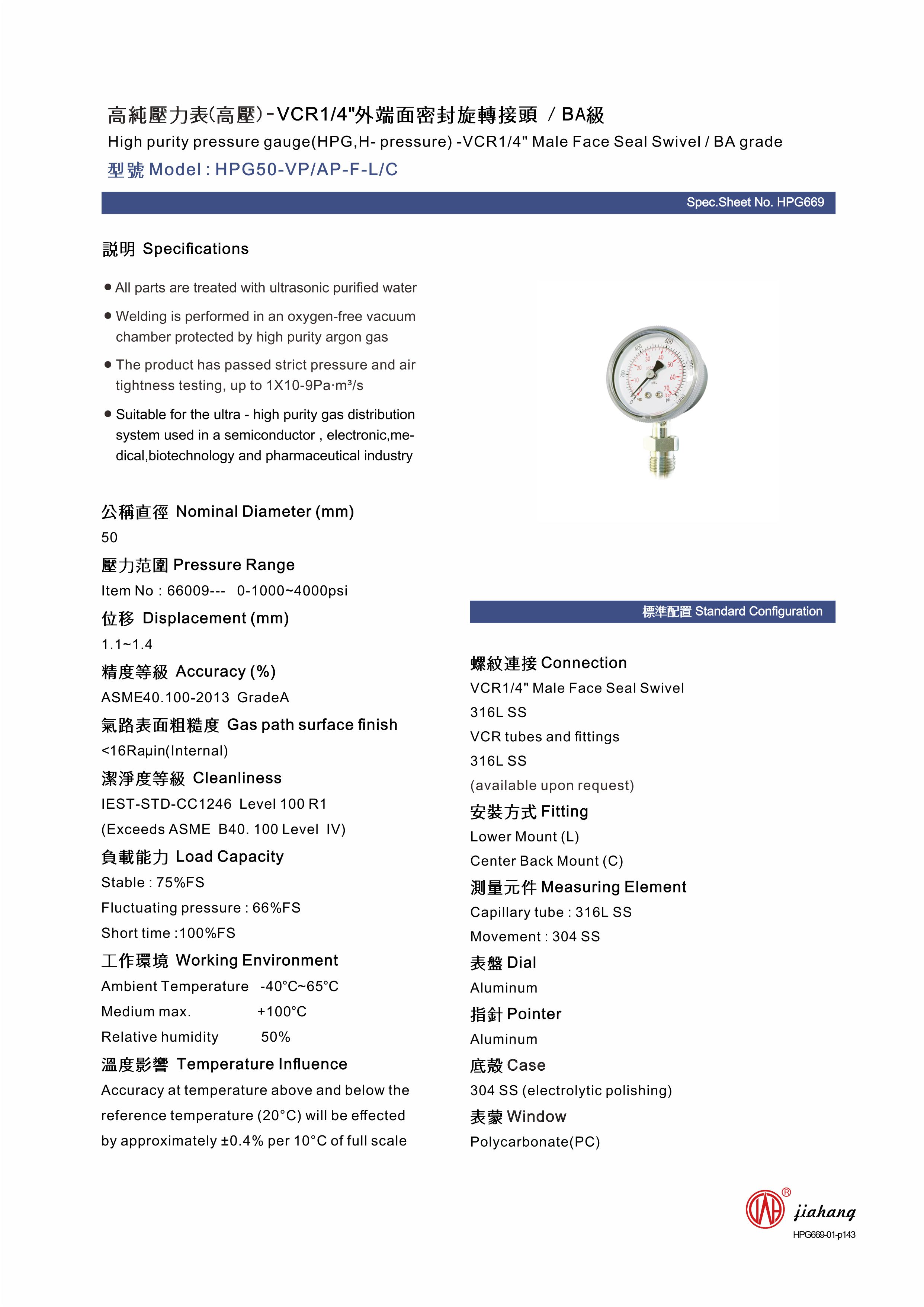
12月 . 06, 2024 06:30 Back to list
High Accuracy Pressure Gauge for Precise Measurements in Industrial Applications
Understanding Precision Pressure Gauges Importance, Types, and Applications
Pressure measurement is a critical aspect of various industries, including manufacturing, aviation, and chemical processing. Accurate pressure readings are essential to ensure safety, efficiency, and product quality. At the forefront of these measurements are precision pressure gauges, which are designed to provide reliable and accurate pressure data for a plethora of applications.
What are Precision Pressure Gauges?
Precision pressure gauges are specialized instruments used to measure the pressure of gases and liquids within different systems. Unlike standard pressure gauges that may provide a rough estimate, precision gauges are engineered for accuracy and reliability, even in challenging conditions. These instruments can measure pressure with an accuracy of up to ±0.1% of the full scale, making them indispensable in environments where minute pressure variations can lead to significant consequences.
Importance of Precision in Pressure Measurement
The importance of precision in pressure measurement cannot be overstated. In industries such as pharmaceuticals, aerospace, and food processing, maintaining a specific pressure is crucial for compliance with safety and regulatory standards. For instance, in the pharmaceutical sector, any deviation from the required pressure could result in compromised product integrity and potential health hazards. Similarly, in aerospace applications, precise pressure measurements ensure the safety and performance of aircraft, where even minor discrepancies can impact overall functionality.
Moreover, accurate pressure readings are vital in process control. Many industrial processes depend on correct pressure levels to optimize efficiency and reduce waste. Precision pressure gauges help businesses achieve higher operating efficiencies by enabling them to monitor and adjust processes in real time.
Types of Precision Pressure Gauges
There are several types of precision pressure gauges, each suited for specific applications and environments
1. Bourdon Tube Pressure Gauges These are one of the most commonly used types. They use a bent tube that straightens under pressure, which moves a pointer on a dial. They are highly durable and suitable for a variety of industrial applications.
2. Digital Pressure Gauges These gauges provide a direct digital readout and often feature advanced functionalities like data logging and connectivity options. Their ability to provide real-time data makes them ideal for modern industrial applications.
precision pressure gauge,

3. Capacitive Pressure Sensors Utilizing changes in capacitance to measure pressure, these sensors offer high accuracy and are often used in laboratory setups and critical applications.
4. Piezoelectric Sensors These operate on the principle of generating an electric charge in response to applied pressure. They are particularly effective for dynamic pressure measurements and are widely used in research and development settings.
Applications of Precision Pressure Gauges
Precision pressure gauges find applications across various industries
- Oil and Gas In these sectors, monitoring pressure is vital for exploration, extraction, and processing. Precision gauges ensure that operations are conducted within safe pressure limits.
- Automotive Industry They are used in testing and monitoring various systems within vehicles, including fuel delivery and tire pressure.
- Chemical Manufacturing The chemical industry relies on precision pressure gauges to maintain safe and efficient reactions under high pressure.
- HVAC Systems In heating, ventilation, and air conditioning, precision pressure gauges play a critical role in ensuring systems operate within recommended pressure ranges for optimal performance.
Conclusion
In conclusion, precision pressure gauges are vital instruments that enhance safety, efficiency, and quality across a variety of industries. With their ability to provide accurate pressure readings, they enable companies to make informed decisions, optimize processes, and comply with regulatory standards. As technology advances, these gauges are becoming increasingly sophisticated, providing integrative solutions that sync with modern industrial systems. Investing in high-quality precision pressure gauges is not just a recommendation but a necessity for any business seeking to maintain its competitive edge in today’s market.
-
High-Precision 5 Valve Manifold Differential Pressure Gauge Suppliers
NewsApr.29,2025
-
High-Precision Diaphragm Vacuum Pressure Gauges Manufacturers & Quotes
NewsApr.29,2025
-
Omega Differential Pressure Gauges High Accuracy & Durability
NewsApr.28,2025
-
Low Pressure Differential Pressure Gauges Precision Solutions & Quotes
NewsApr.28,2025
-
Digital Diaphragm Pressure Gaauge Precision Measurement & OEM Quotes
NewsApr.28,2025
-
Differential Pressure Gauge China Price High-Accuracy & Best Quotes
NewsApr.28,2025
